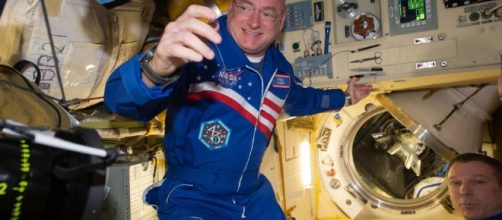Science Times has a piece that describes a conundrum that space policy experts, especially in Congress, which writes the checks, have about the International Space Station. If we want to keep the ISS going past 2024, we may have to postpone the Journey to Mars. Of course, that may be the wrong question to ask, considering that many in the Trump administration and Congress want to pivot back to the moon on the way to Mars. A lunar effort would happen almost immediately and would, therefore, result in some difficult choices before 2024.
To be sure that lunar effort would have the support of international partners as well as the commercial sector, something that is lacking in the Journey To Mars, with the possible exception of SpaceX’s Elon Musk who has Mars plans that are divorced from what NASA proposes to undertake.
And NASA’s Earth science account is seen a fat and bloated, ripe for trimming to pay for exploration.
The Science Times article has a curious last paragraph. “A premature and ill-advised decision might send a wrong signal to the commercial space companies that the ISS is up for grabs. Meaning, a day might come when the ISS may simply become a commercial outpost.”
Ironically, this writer advocated privatizing the ISS in a USA Today article last year. The idea would be to sell or lease the space station to a private vendor, getting NASA and the international partners out from under the cost of maintaining it. Then the savings could be directed toward going to Mars, and the ISS would still be there, uncovering the secrets of the universe, only under new management.
Of course, another, somewhat outside the box solution exists. Gwynne Shotwell, the president and chief operating officer of SpaceX, once said that a lot of arguments about NASA space policy would go away if the Space Agency’s budget would be increased from its current $19.3 billion to $23 or $25 billion a year. Then, if NASA is under competent leadership with a clear direction from the White House and support from Congress, it could do a lot of great things. The difference between what NASA spend now and what it could spend is a rounding error insofar as the federal budget is concerned. But the difference could mean a crippled, plodding NASA with continued fights over priorities and a space agency that can proceed as the leading edge of the opening of the High Frontier of space.

